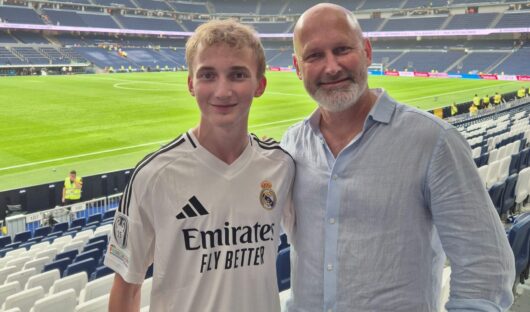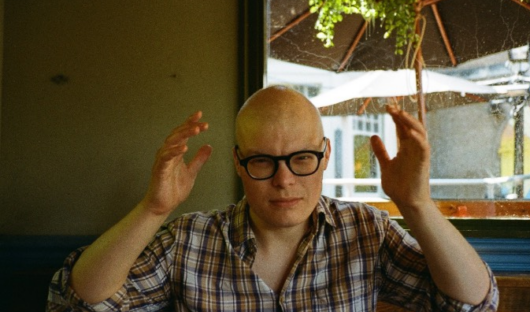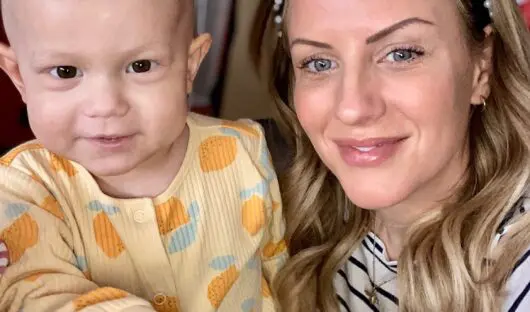Isobel’s story: Cancer diagnosis at 19 turns life upside down
April is Teenage and Young Adult Cancer Awareness Month (TYACAM).
Launched in 2023 by cancer charities across the UK, TYACAM aims to highlight the experiences of young people with cancer. Among those sharing their story to mark the month was Isobel, 23 from Essex, who was diagnosed with sarcoma at just 19 in 2022. Sadly, last week we received the devastating news that Isobel died in her sleep on Wednesday 2nd April.
Isobel was passionate about raising awareness about what it’s like to be a young person with cancer. Her mother has asked us to honour her wish and continue to share her voice. Here is her story:
Isobel was enjoying working in the City of London and spending time with friends – a ‘standard 19-year-old’. However, in November 2022 she started having problems with her uterus, feeling and looking bloated and experiencing a lot of pain. When she was eventually diagnosed she was told the mass was the size of a football in her uterus.
Isobel had to stop work to start on treatment and struggled with hair loss as well as being away from her friends and not being able to socialise like she had before. Now, she has made some friends who are also facing cancer and says that peer support is vital to help get through treatment. Her Young Lives vs Cancer Specialist Social Worker Lydia has helped her to access PIP and been an emotional support for both her and her mum throughout treatment.

Isobel was diagnosed with cancer at 19 years old and has been having treatment at UCLH
“I was 19 before I got diagnosed – pretty much the standard 19-year-old, going out all the time. I had three holidays booked with my girls, I’d been at my job for four years. I work in the City, in London, I had a very busy social life. Just a normal 19-year-old that really enjoys life.”
Isobel started to notice her period pains had started getting worse.
“I’ve always had problems with my uterus since I started my periods. Nothing out of the ordinary, but around the November it started to get worse. Sometimes I’d look about 4 months pregnant and would be painful for days on end. I had a scan and they said I had some fibroids along my uterus they said it’s nothing to worry about. My age was a big factor in it, I think they didn’t take it seriously when they would have if I was older. That was around November time and it just kept getting worse and worse.
“I went on holiday in the March with one of my best friends and I was in agony, I thought I’d done something in the gym, my groin was really sore, the bottom of my spine was really sore I spent a lot of the holiday in bed in pain. I flew home and went straight to A&E. I ended up going back and forth to A&E around six times. The fibroids started off as the size of a 5p piece and by the time I went back to the hospital, it was the size of a football in my uterus. I kept being told I need an MRI but the wait was around nine months. Thankfully we are fortunate enough that we could pay to go privately and from the day I had the private scan, on the Wednesday, by the Saturday I was admitted in hospital straight away.
“The pain was mainly in the bottom of my spine, my groin and my tummy, I couldn’t eat, I could barely walk up the stairs, I spent two weeks sleeping downstairs because I couldn’t physically get myself into bed. We went six times to A&E and they kept turning us away.
I was admitted to our local hospital for a week where I had a biopsy, another MRI, all different scans and then I found out the diagnosis the Friday after. I was told early morning on the 12th of May and then I got blue-lighted to UCLH and from the moment I got there my whole experience changed drastically. They were out of this world; they explained everything to me. I’d never heard of sarcoma. I said ‘I don’t really know what that is’ and they told me as much as I wanted to know.”
Once Isobel was told her diagnosis, she was transferred to University College London Hospital (UCLH) to start treatment.
“I started chemo really quickly. Because I was so poorly, they were like ‘we do need to start and we need to start now’ so from when I got admitted in it was a bit of a mind blank for that week. I was in UCLH for about 40 days. When I was in hospital I had to learn to walk again, my legs had completely given up so I was seeing a physio once a day while I was in there.
“In my head I knew something wasn’t right. You know your body and I think you can just tell things aren’t right, I had never felt as unwell as I did. I deep down knew it was cancer.”
“It’s only me, my mum, dad and my brother and my mum has been amazing through it all. I don’t think she left my side for around 50 days. My brother has been out of this world, he has been my rock through it all. They would all come up to visit every single day in hospital. I’ve got the best support network, my friends and family.”
Isobel was working in London at the time and had to stop work to have treatment.
“My work were amazing through it all. I stopped work for about four months but I was dying to get back, as soon as I had a pause on treatment I was like ‘please get me back to work because I am going insane and can’t be in my house any longer’. It really did take a toll on me. I love going out and love seeing my friends and for around four or five months I didn’t get to do that. Because the chemo I was on last year was so strong, I was constantly getting admitted to hospital because of infection. I had no immune system – it felt like my whole life went on pause for around 6 months. You feel like everyone’s life is carrying on and I felt stuck at a traffic light. As much as social media is so good, all I wanted to do was not be on social media because I didn’t want to see everyone enjoying themselves.
“Last year I had six rounds of intense chemotherapy and then I had radiotherapy on my uterus. After that I had some really good news: there was still the tumour in my uterus but it had not changed for a while. Then in January I found out that it had come back a bit more. I’m on a new chemotherapy at the moment, which is ongoing but it’s not as intense so I’m carrying on my lifestyle as much as I can at the moment.”
Isobel’s treatment came with various side effects, including losing her hair.
“I started losing my hair a week after my first round in hospital – I made a promise and said that when I leave hospital, I’m shaving my head because it was falling out and to see it come out is the worst feeling – the feeling of waking up in the morning and seeing your pillow covered, that for me was one of my lowest moments.
“I’m very girly I always have been, I’ve always done my make-up, I’ve always done my hair so for me losing my hair it felt like I was losing a part of myself. I did experiment with wigs. I think I went through every hair colour ever. I have some days where it doesn’t bother me but then I have days that I’m not loving it because it gets hot. I felt a lot less feminine. I had no eyebrows, no eyelashes and no hair. I felt like a blank canvas and felt like I always had to get ready.
As well as the support from her friends and family, Isobel has also been supported by a Young Lives vs Cancer Specialist Social Worker.
“I met my Young Lives vs Cancer specialist social worker Lydia at UCLH. She came over, introduced herself, spoke to me and my mum about Young Lives vs Cancer and asked if we needed any support. I know that my mum was contact with Lydia throughout the whole year for all different things. She helped with getting my PIP sorted. She speaks to me about how I’m feeling and I get to release a lot of my thoughts to her when she comes to see us at the hospital.
“Without Lydia, it definitely would have been a lot tougher – it’s just nice to have somebody that’s not really close to you but can listen, that’s what I find really helpful just having somebody there that we can talk to. It just is somebody that knows what you’re going through – I love my friends but sometimes it’s nice to talk about the things that only we understand.”
Isobel shares some advice to other young people facing cancer, to help get during treatment.
“I would say just to try not let yourself flip, keep being you. I am a lot more fortunate now that my treatment is different to last year. The reason why I want to start telling my story is to get my side out there, to show you are so much more than just your cancer – you can still live your life, you can still do the things you want to do, don’t let it stop you completely.
“At the moment it’s indefinite – the cancer I’ve got isn’t going to go. For young people, it affects relationships with people like friends and romantic relationships – that’s something that, being a young person, is a lot tougher to deal with. There are friends that are absolutely amazing but I think a lot of young people would say it’s harder to keep friendships and relationships during that time – it definitely shows you who your real friends are
“When you’re growing up, relationships are difficult and especially in this generation they’re never that easy. They were difficult before having cancer so to try and do it after, it’s so hard – it’s so new. I found that being a young girl, I find it hard to introduce the topic when talking to boys. Is it the right thing to say or wrong thing to say? You notice that before I had cancer the people I had been seeing previously, when they found out, the relationship did change. And with friendships, you definitely notice people slowly dropping away.”
Posted on Tuesday 1 April 2025


